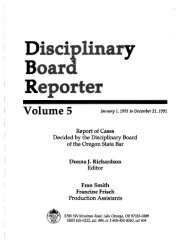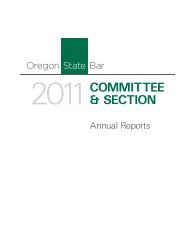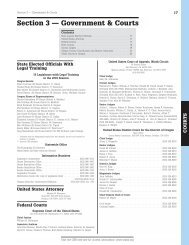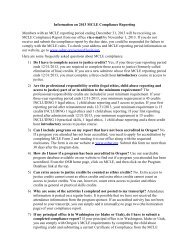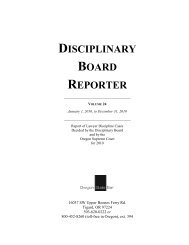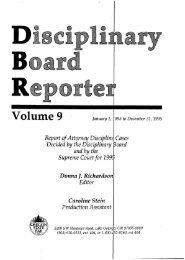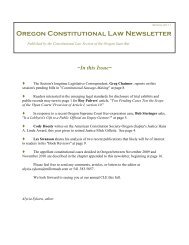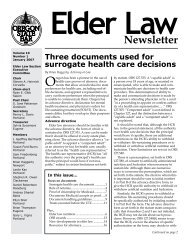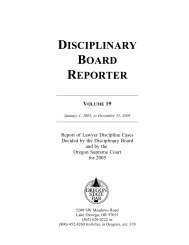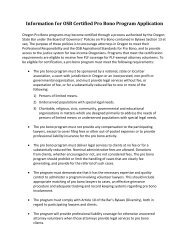Jackson v. Franklin Sports Gazette, Inc. Grading ... - Oregon State Bar
Jackson v. Franklin Sports Gazette, Inc. Grading ... - Oregon State Bar
Jackson v. Franklin Sports Gazette, Inc. Grading ... - Oregon State Bar
Create successful ePaper yourself
Turn your PDF publications into a flip-book with our unique Google optimized e-Paper software.
Multistate Performance Test<br />
<strong>Jackson</strong> v. <strong>Franklin</strong> <strong>Sports</strong> <strong>Gazette</strong>, <strong>Inc</strong>.<br />
<strong>Grading</strong> Guidelines<br />
<br />
<br />
Miller limited the news reporting exemption to cases<br />
where “there can be no inference of endorsement by the<br />
individual depicted.” In dictum, the court speculated<br />
that if the ad had featured the plaintiff’s name, that<br />
might constitute an implied endorsement and the<br />
exemption would not apply.<br />
Citing Miller, <strong>Jackson</strong> could claim that the <strong>Gazette</strong>’s<br />
use of the Photo, coupled with the repeated use of the<br />
word “action” in the ad, constituted an “implied<br />
endorsement” by <strong>Jackson</strong> and was meant to exploit his<br />
popularity as “Action <strong>Jackson</strong>.”<br />
<br />
<br />
<br />
<br />
The statute: Citing § 62, <strong>Jackson</strong> could successfully argue<br />
that by using the phrase “sports broadcast or account” the<br />
legislature limited the affirmative defense to “accounts”<br />
and that it does not cover ancillary uses such as<br />
advertisements.<br />
On the other hand, the legislative history for § 62 suggests<br />
it is an open question whether the affirmative defense for<br />
the use of a photograph “in connection with any news . . .<br />
or sports broadcast or account” encompasses ancillary<br />
uses, such as the <strong>Gazette</strong>’s use of the Photo.<br />
If Miller remains good law, the <strong>Gazette</strong>’s use of the Photo<br />
likely comes within the news reporting affirmative defense<br />
and does not infringe <strong>Jackson</strong>’s right of publicity.<br />
In sum, the issue can be argued either way, although it<br />
appears somewhat more likely that a court would be<br />
inclined to follow Miller and conclude that the right of<br />
publicity is not infringed by ancillary use in advertising the<br />
news medium itself.<br />
This is a subtle issue, and could<br />
go either way. Thus applicants<br />
should receive full credit for<br />
identifying and thoroughly<br />
analyzing this issue, regardless of<br />
their ultimate conclusions.<br />
15<br />
Not for Public Distribution



